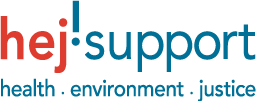
Global Minimum Transparency Standard (GMTS) for hazardous chemicals in products – a tool for the protection of human health and the environment
Chemicals in ProductsOn March 10, 2022, HEJSupport, SSNC and groundWorkSA held a webinar in the frame of the Online Side Event series organized by the Secretariat of the Minamata Convention on Mercury in preparation for the fourth meeting of the Conference of the Parties to the Minamata Convention. The webinar speakers introduced the Global Minimum Transparency Standard (GMTS) concept as a tool for companies to disclose information on hazardous chemicals in products throughout product lifecycle to ensure the safety of health and the environment and support a non-toxic circular economy. GMTS can help keep track of Minamata Convention Annex A products and those not covered by the Convention and thus support the proper handling of products throughout their lifecycle.
Speakers at the webinar included Dr. Olga Speranskaya and Alexandra Caterbow, co-directors of Health Justice Environment Support; Dr. Andreas Prevodnik, Senior Policy Advisor Chemical Pollutants and Chemicals, the Swedish Society for Nature Conservation; Dr. Eeva Leinala, Principal Administrator of Hazard Assessment Programme and Risk Reduction Programme, OECD; Michael Stanley Jones, Programme Management Officer, Ecosystems Integration Brunch, UNEP; Yuyun Ismawati, Founder, Nexus3 Foundation.
A full presentation on the Global minimum transparency standard for chemicals of concern in materials and products includes a detailed explanation of the GMTS role in achieving transparency on hazardous chemicals in products including mercury. It also features OECD and UNEP support the GMTS idea. In addition, the presentation describes how GMTS can support the disclosure of mercury in products in Indonesia.



